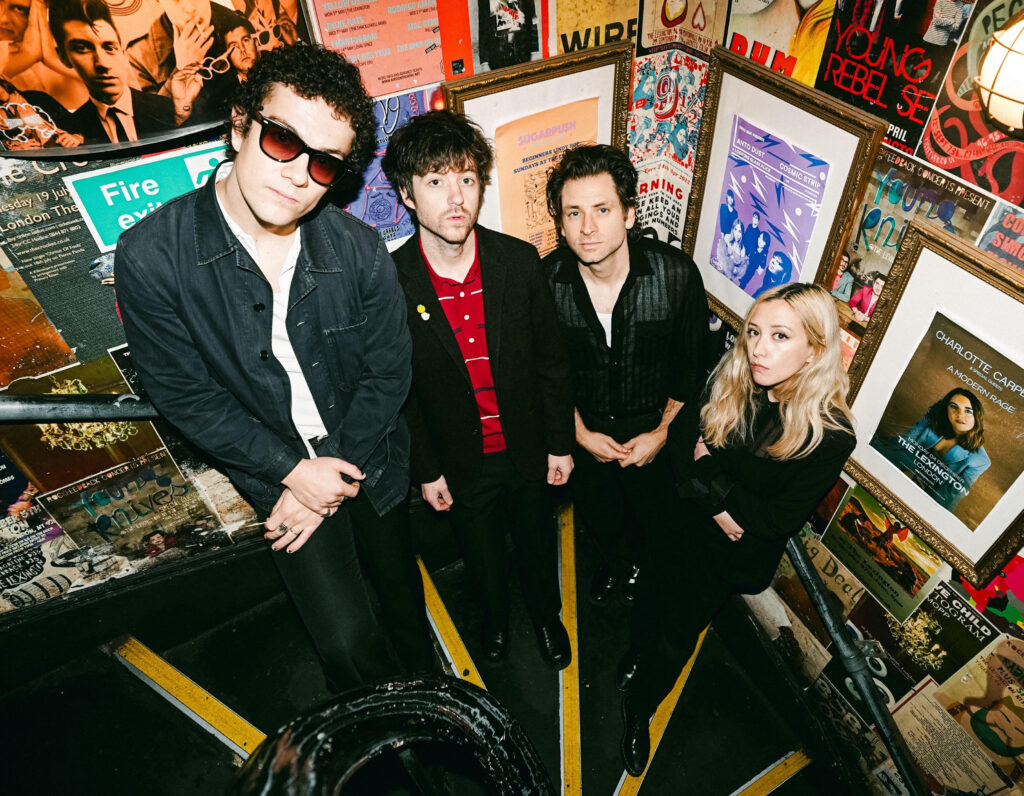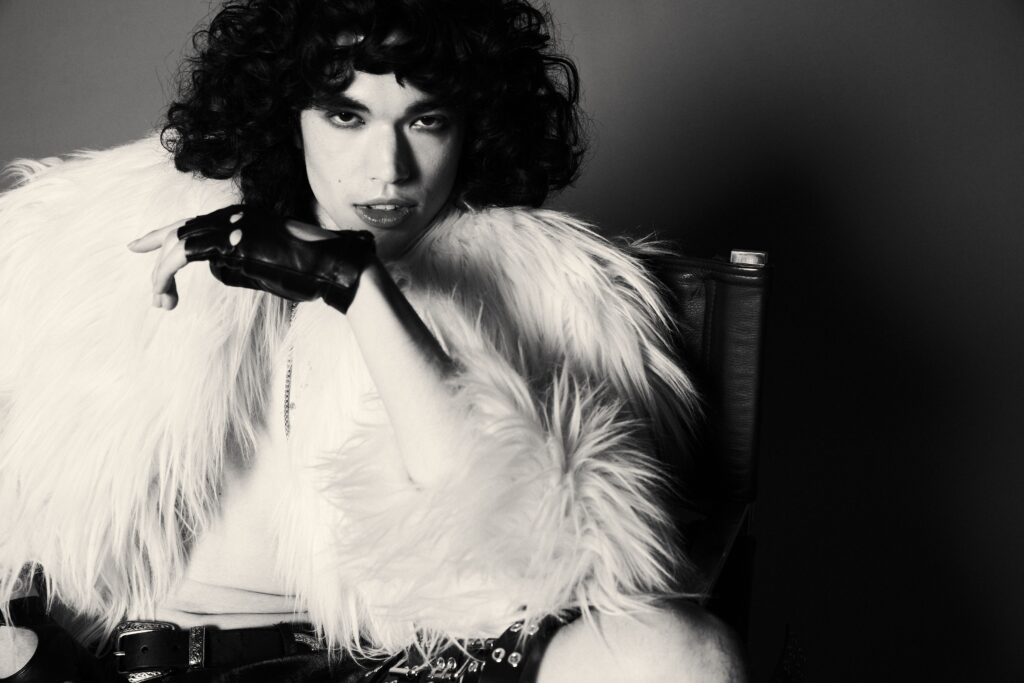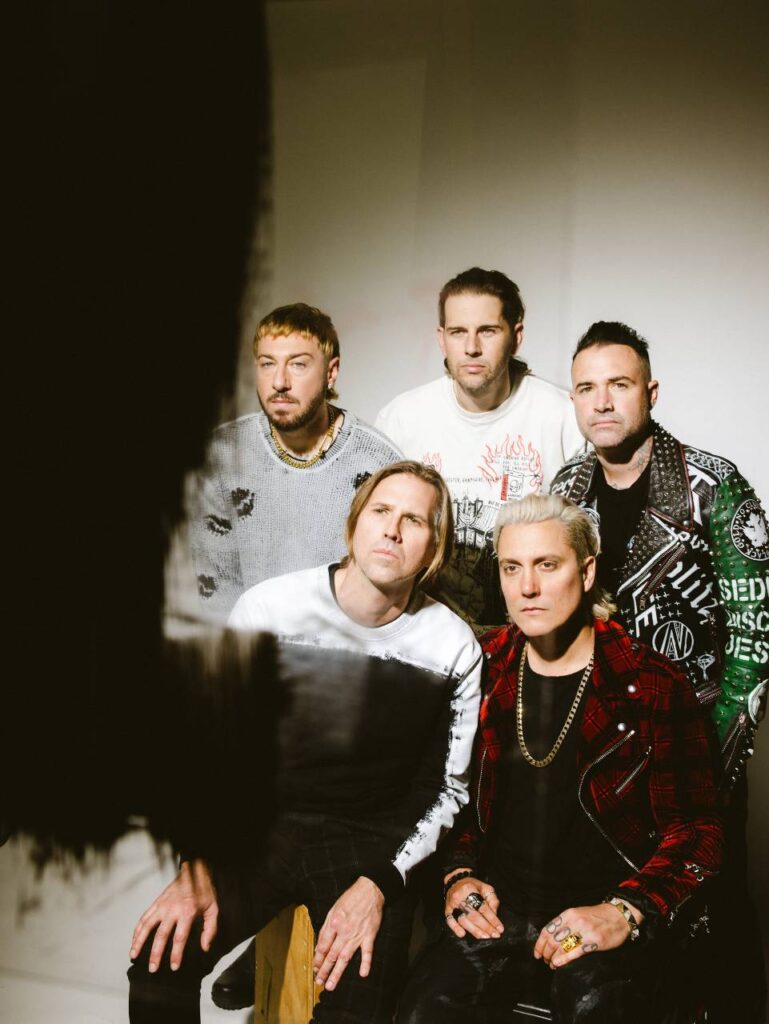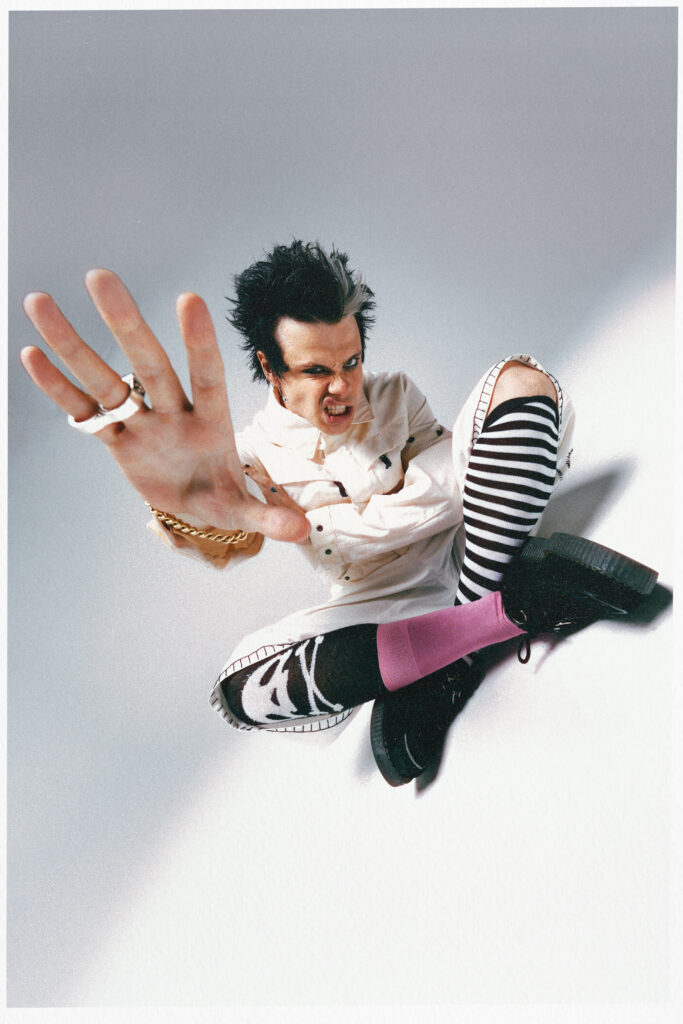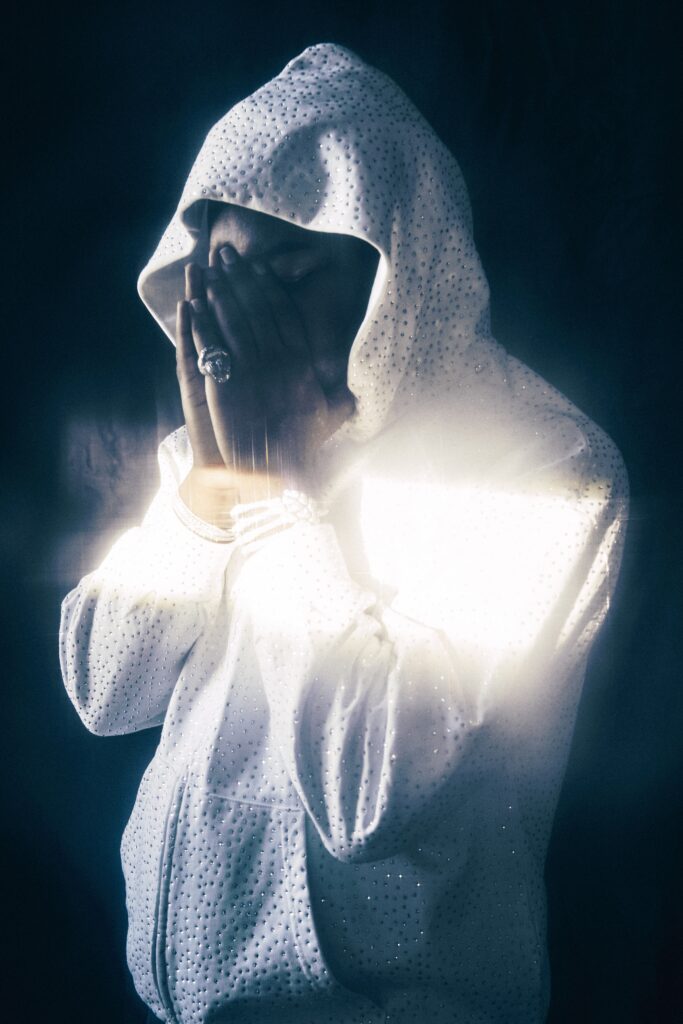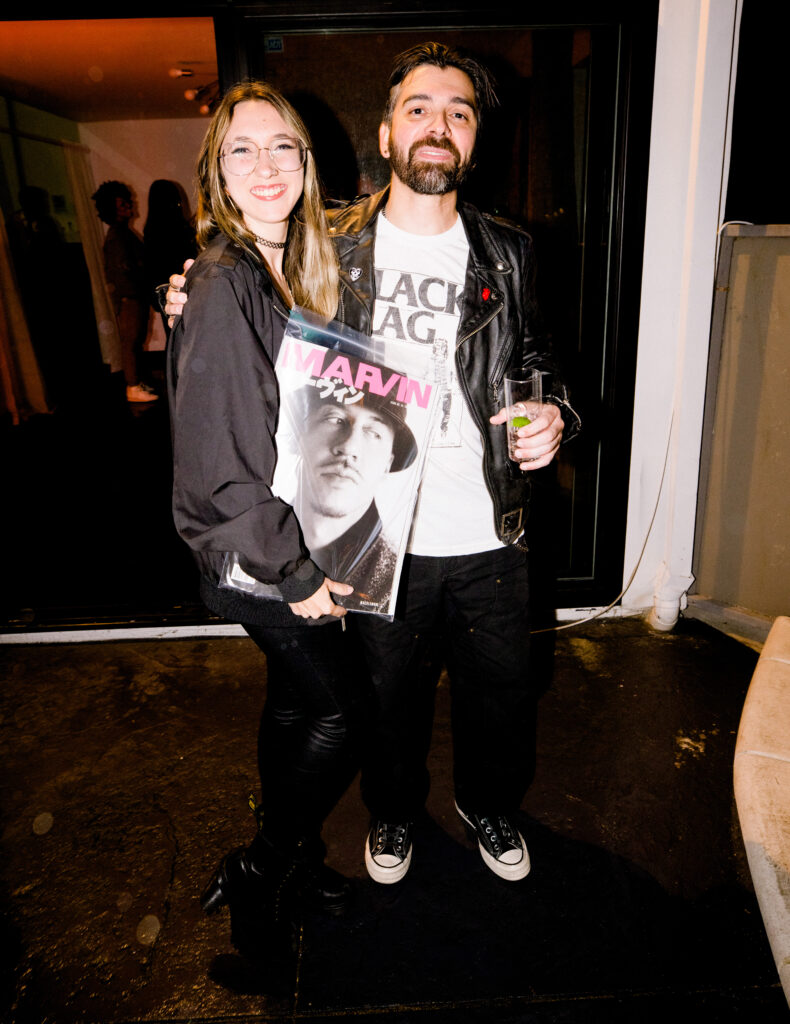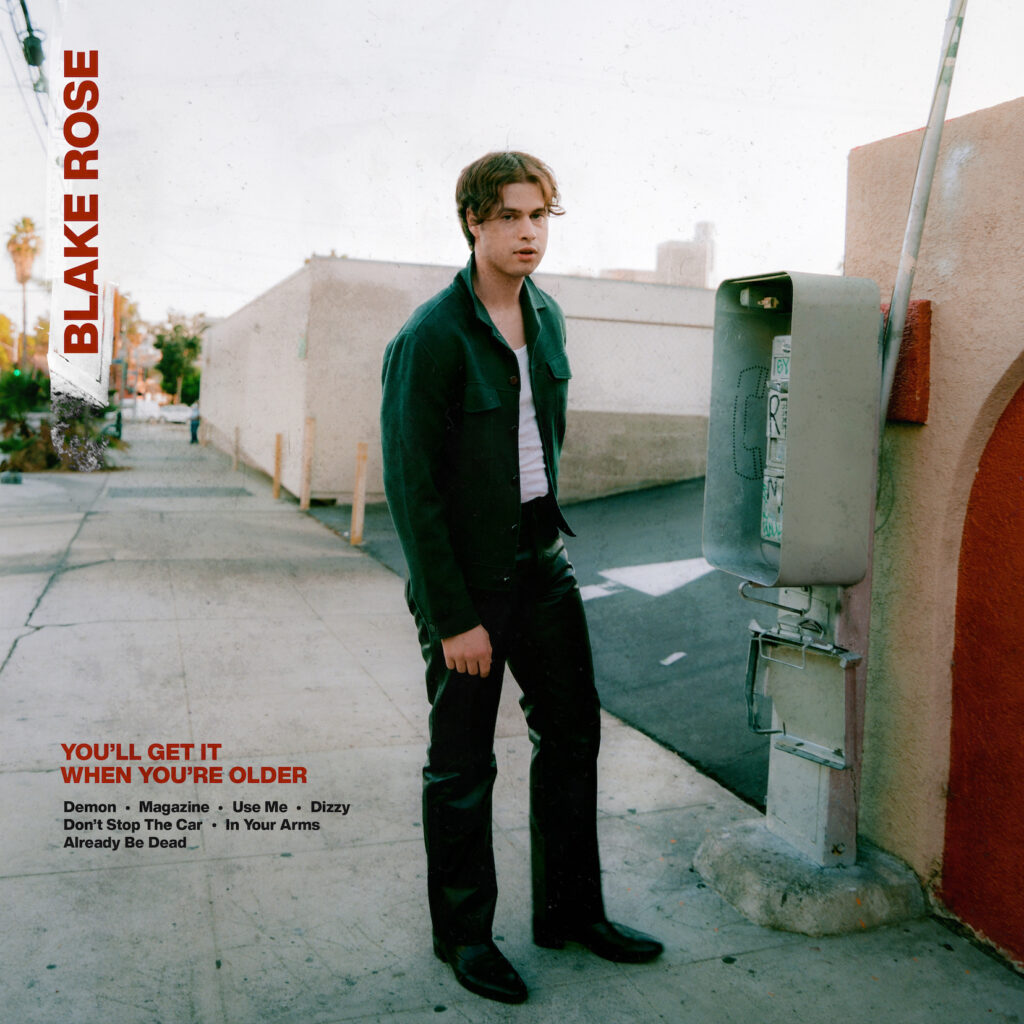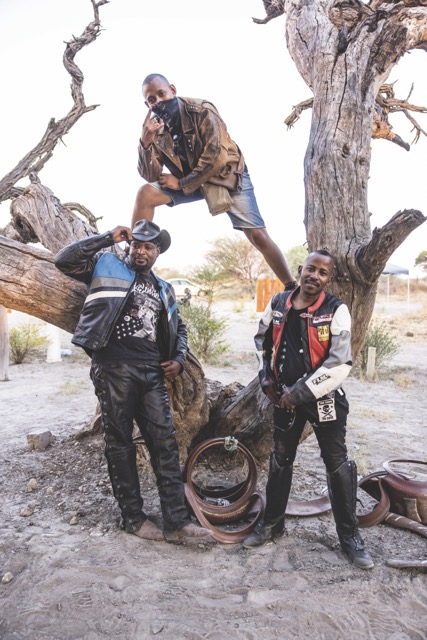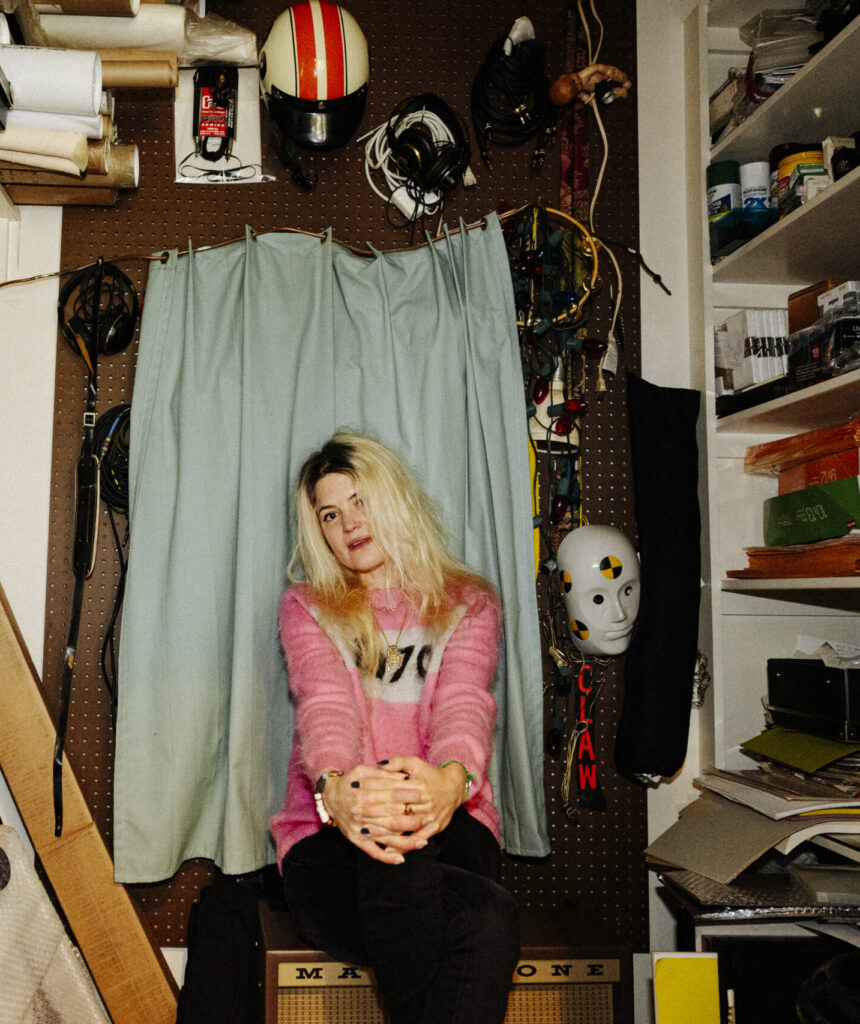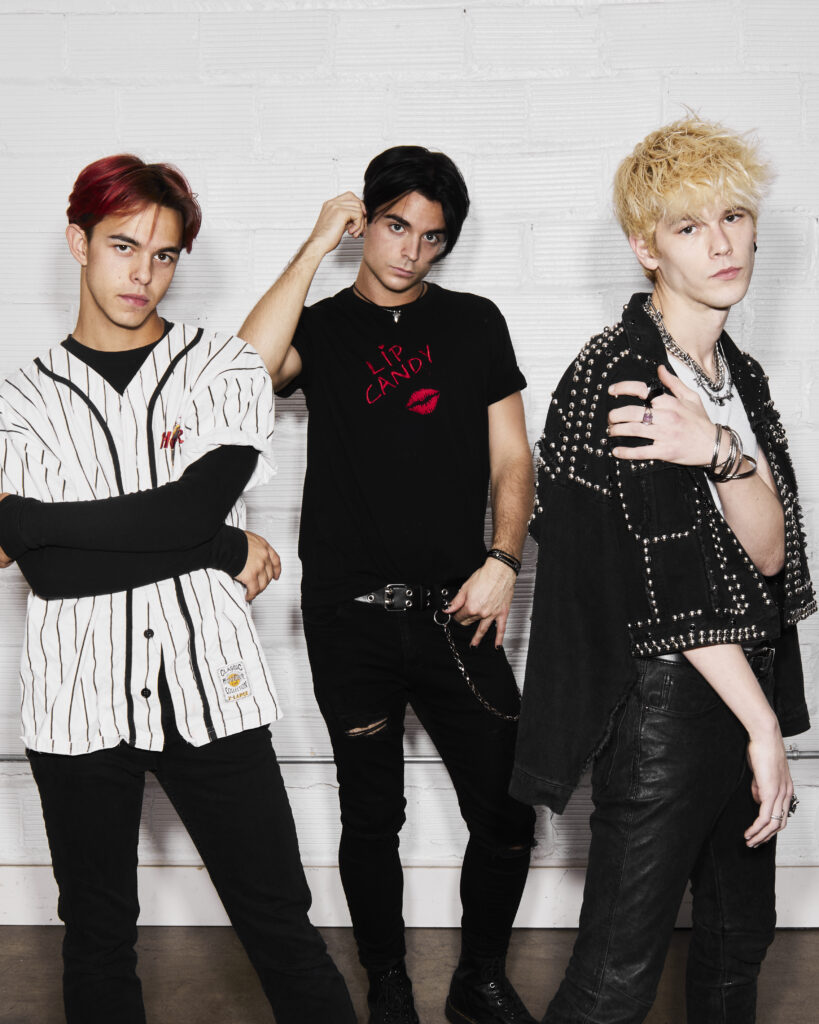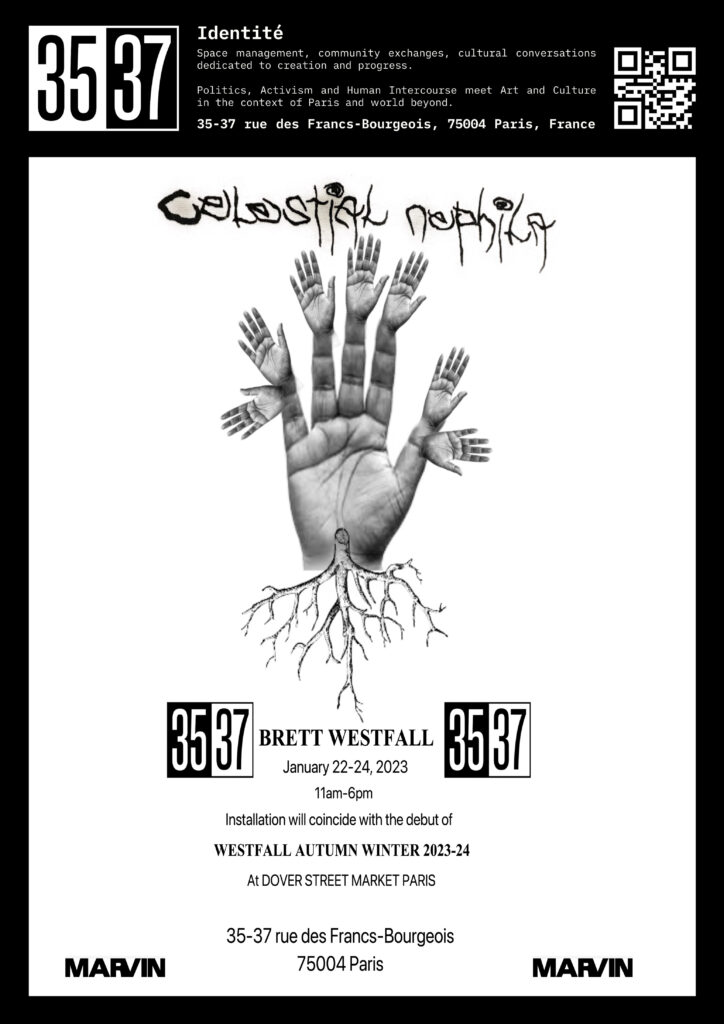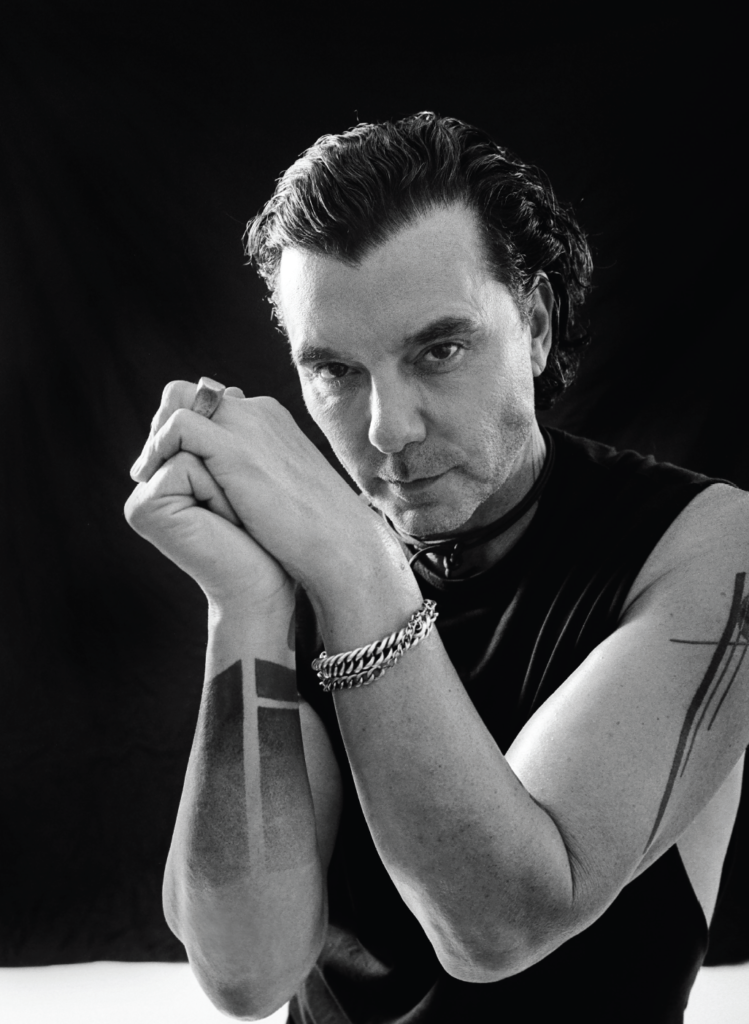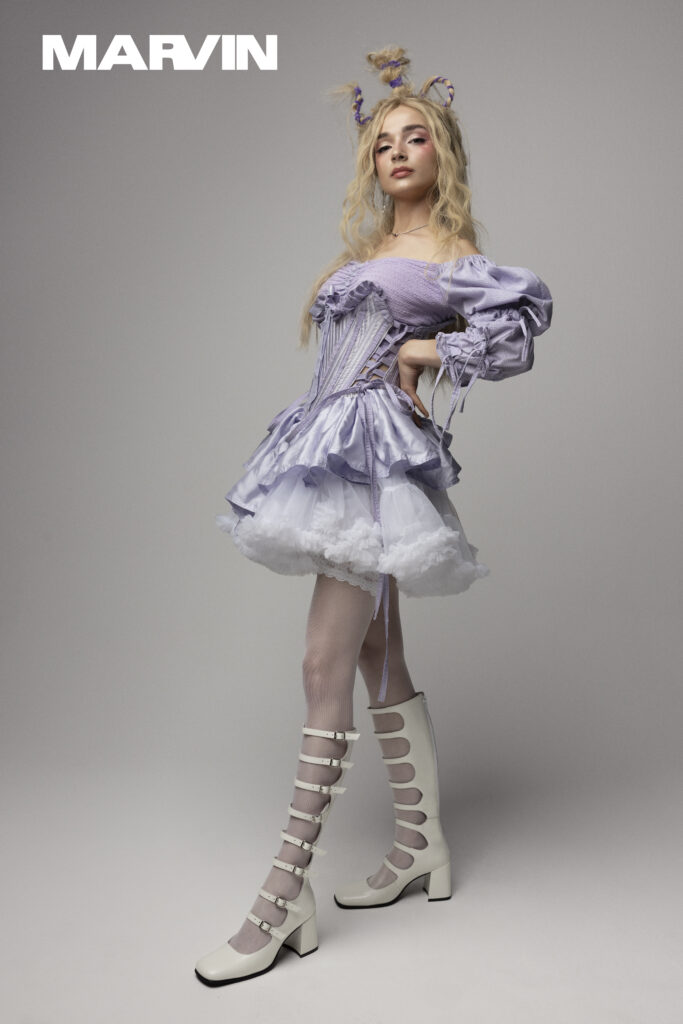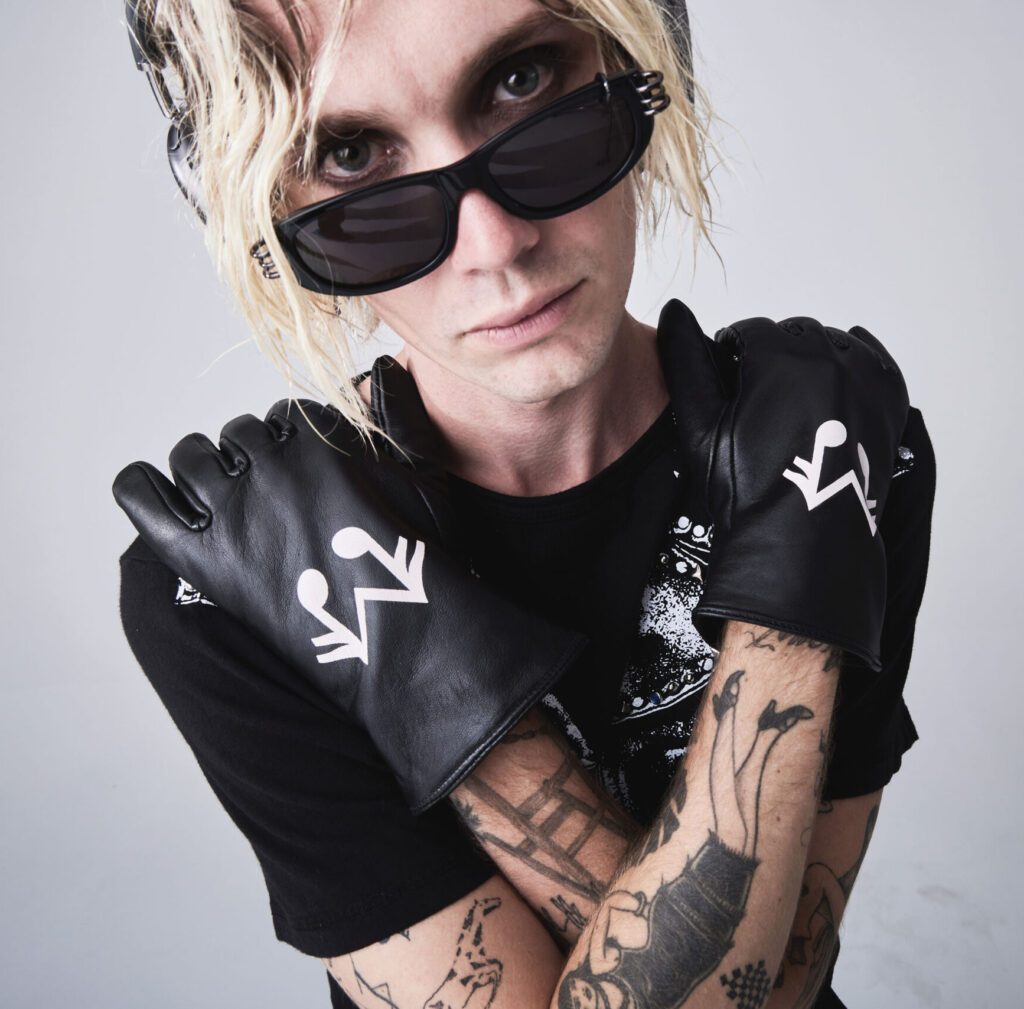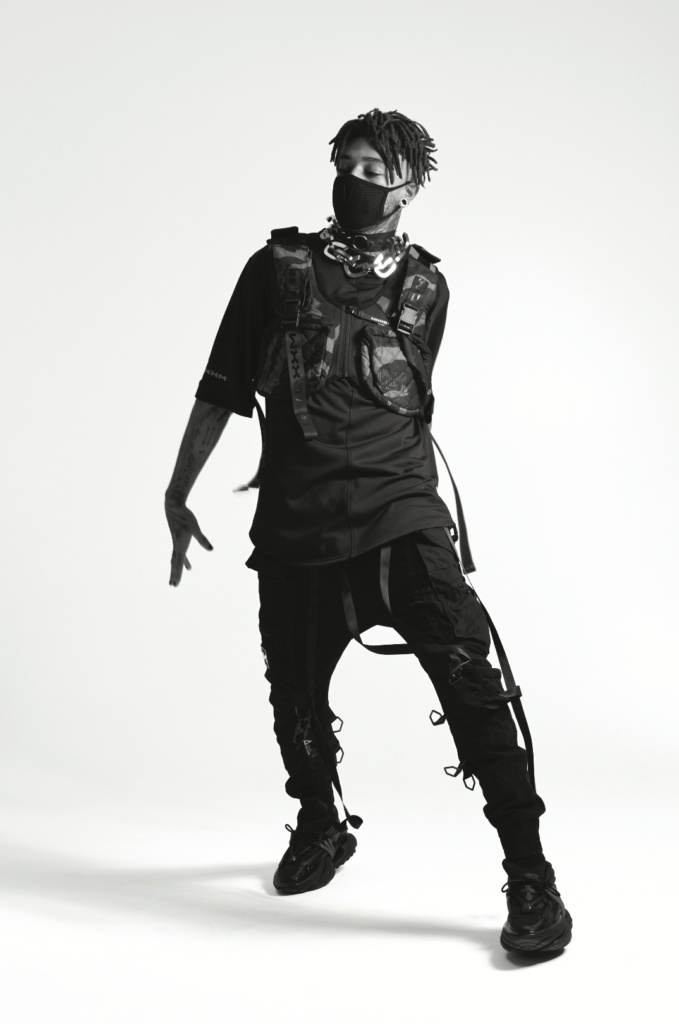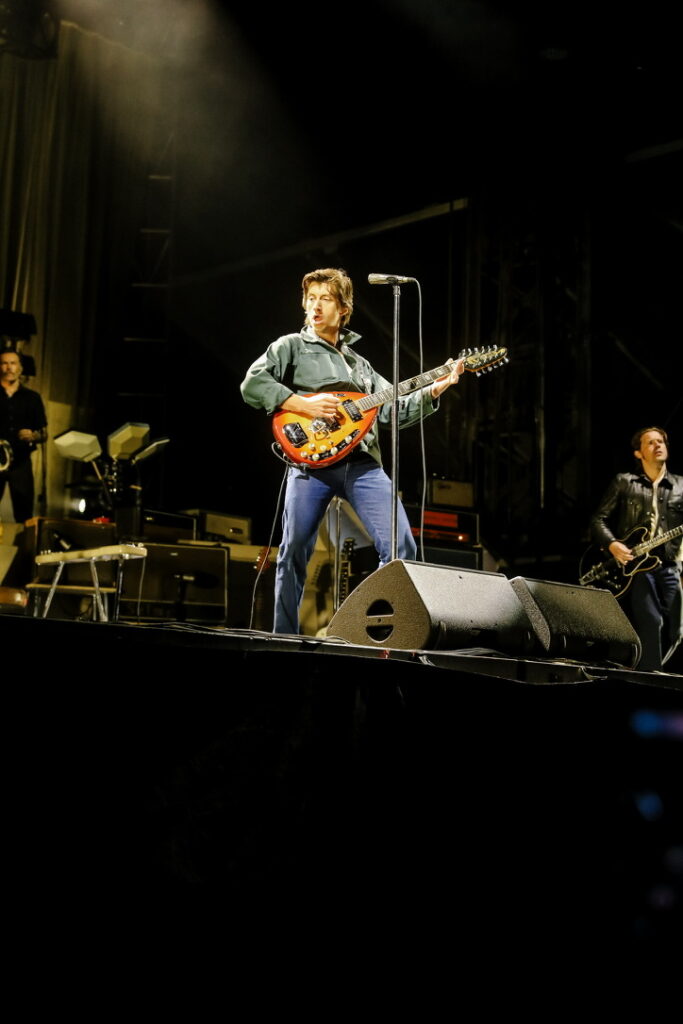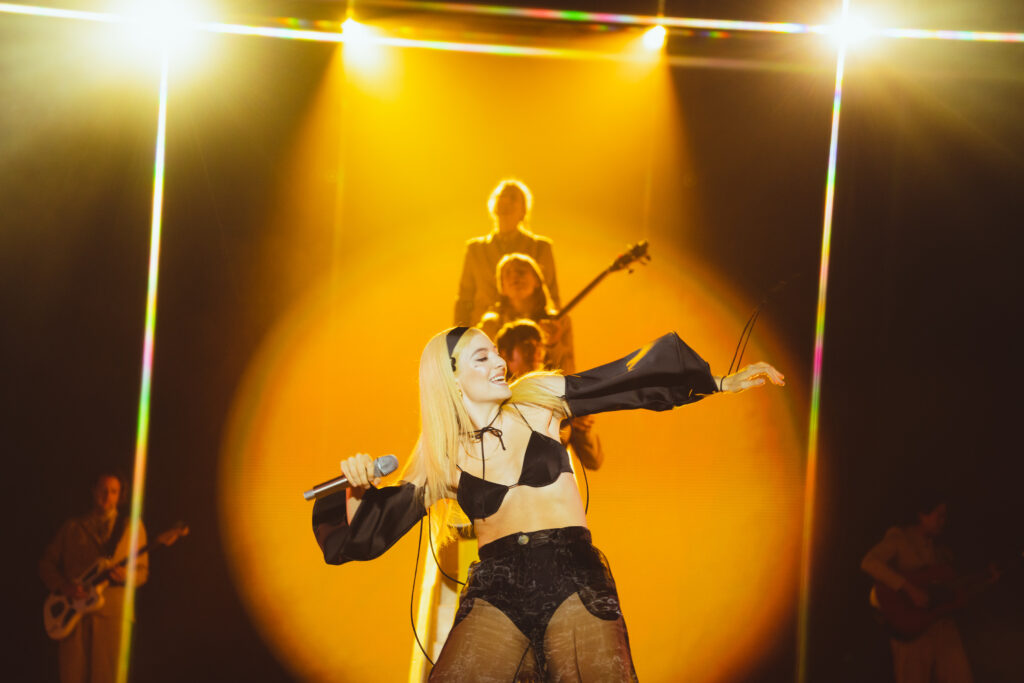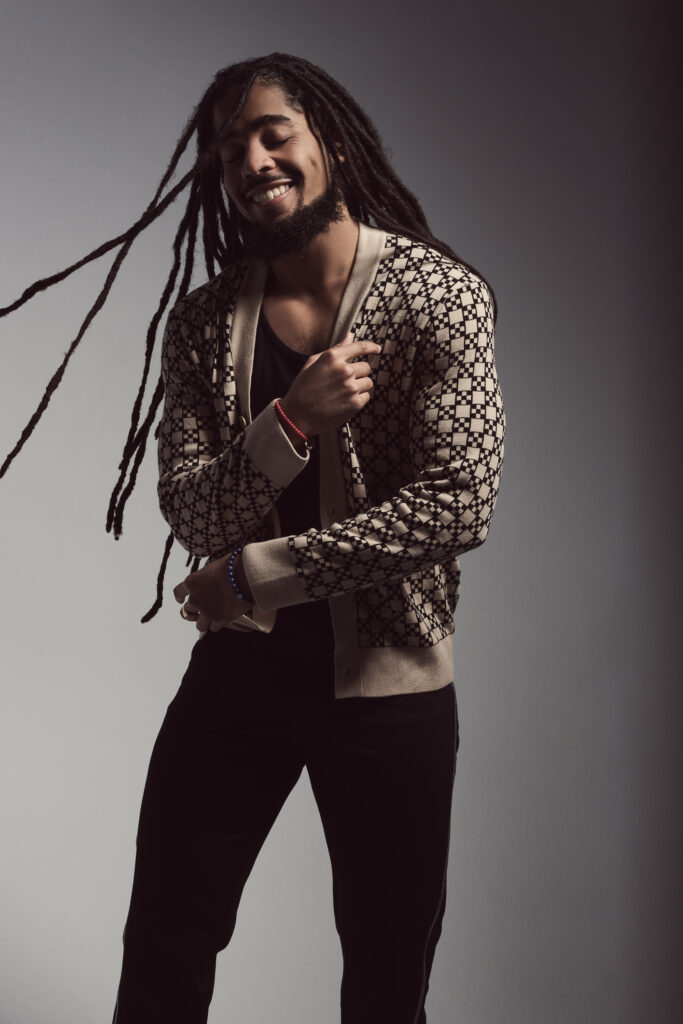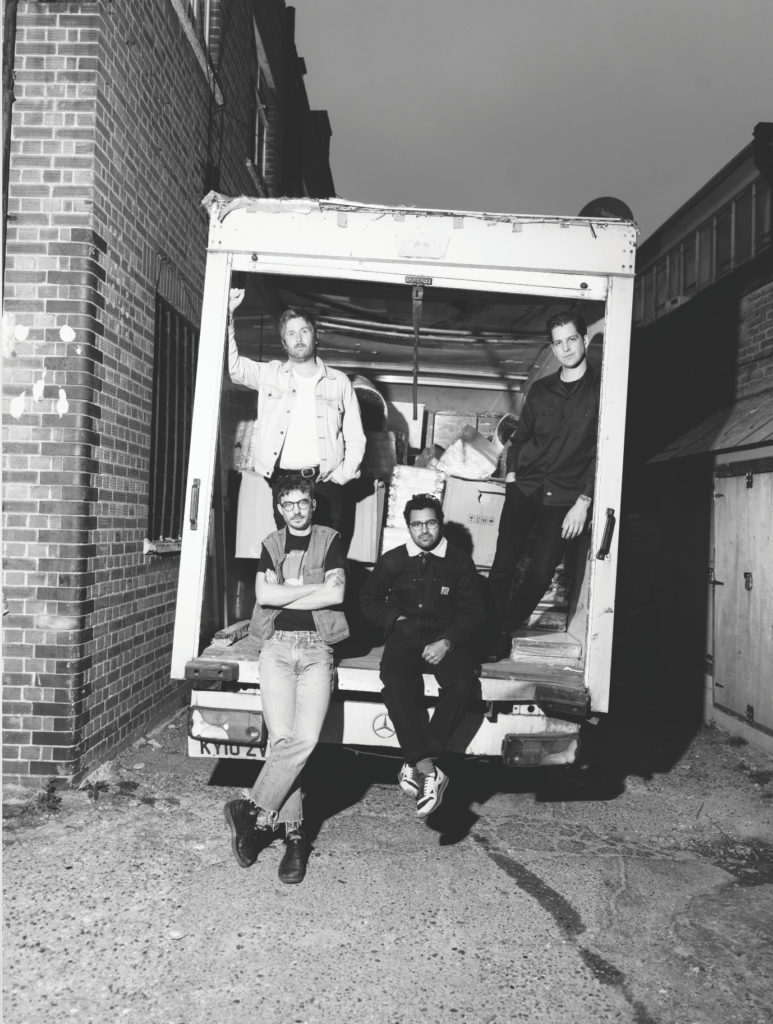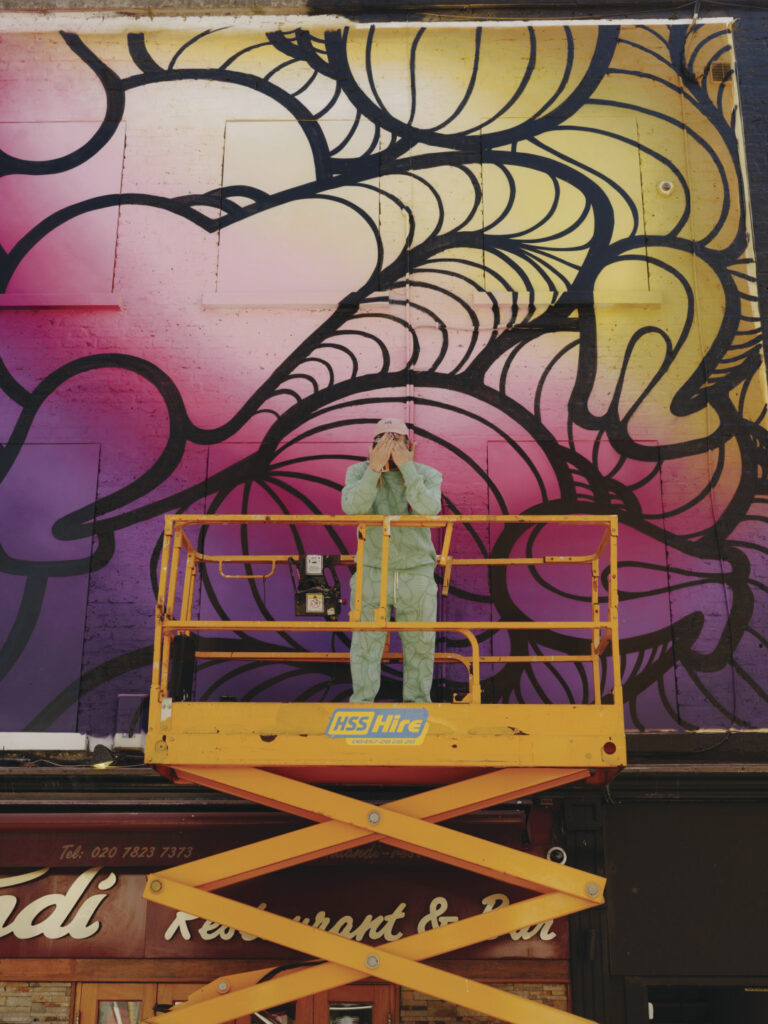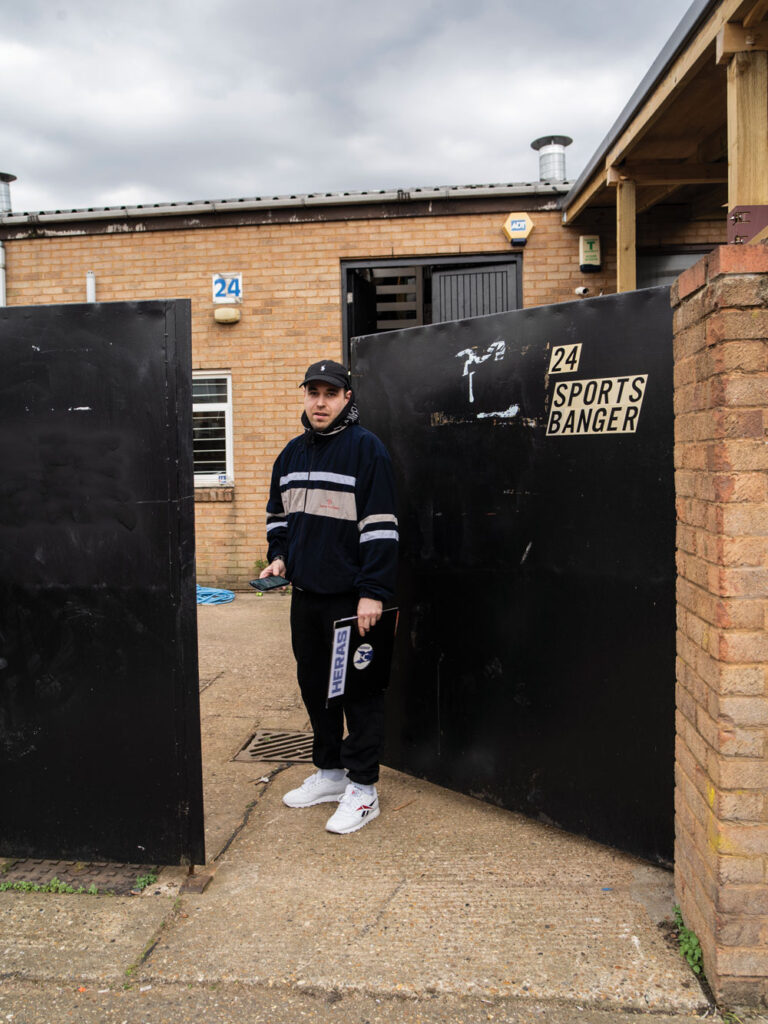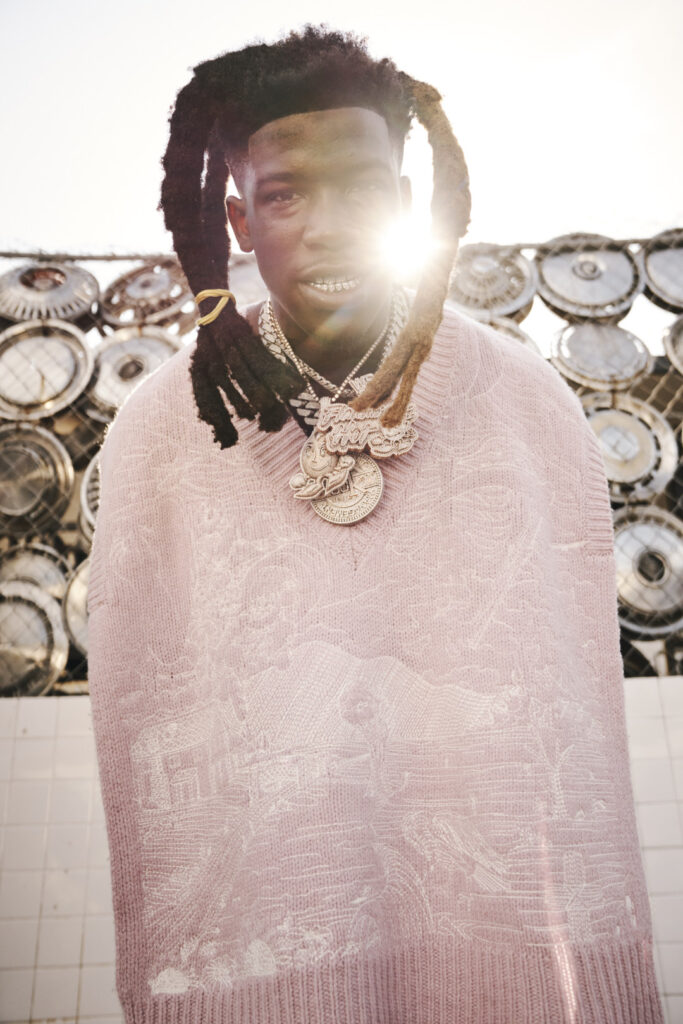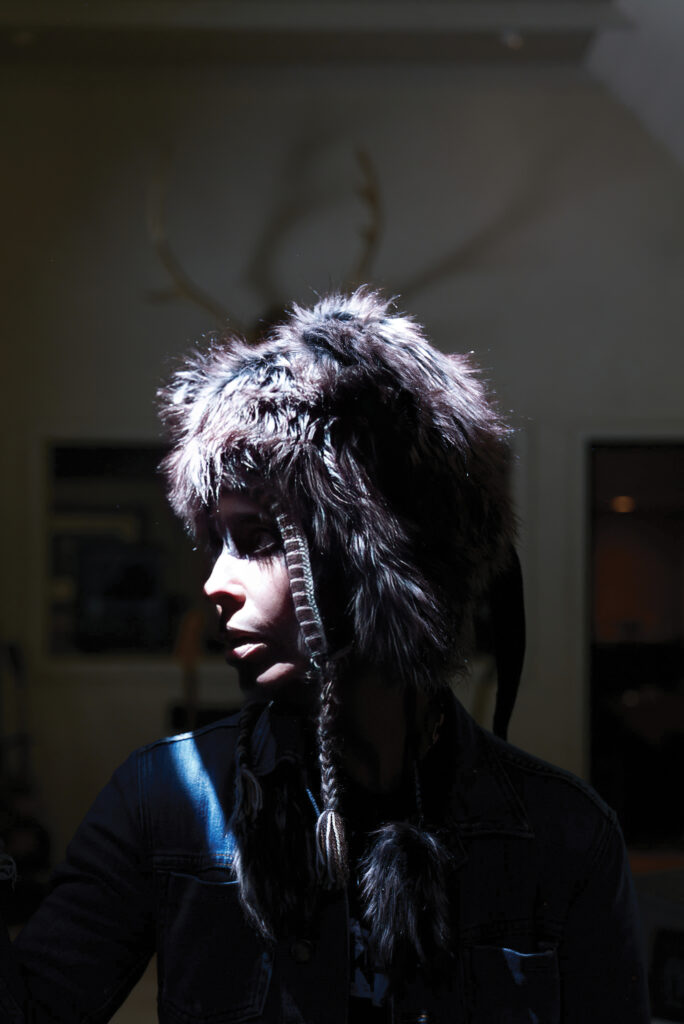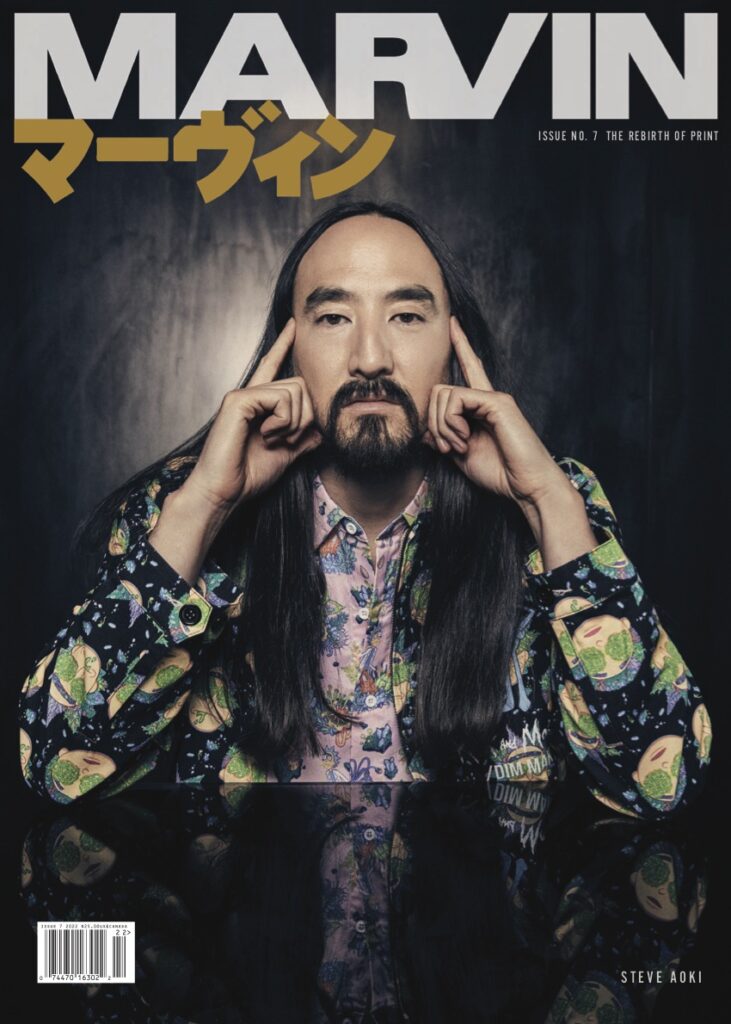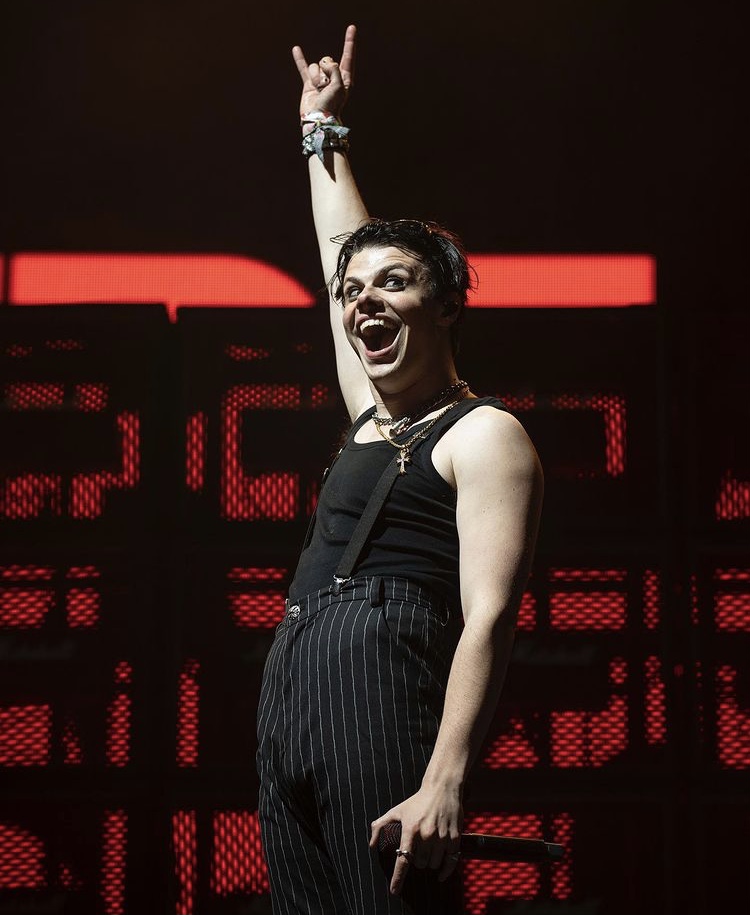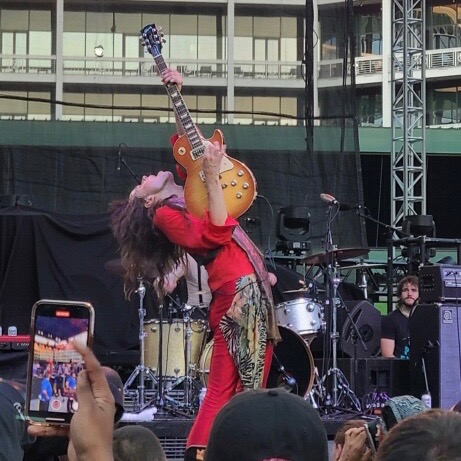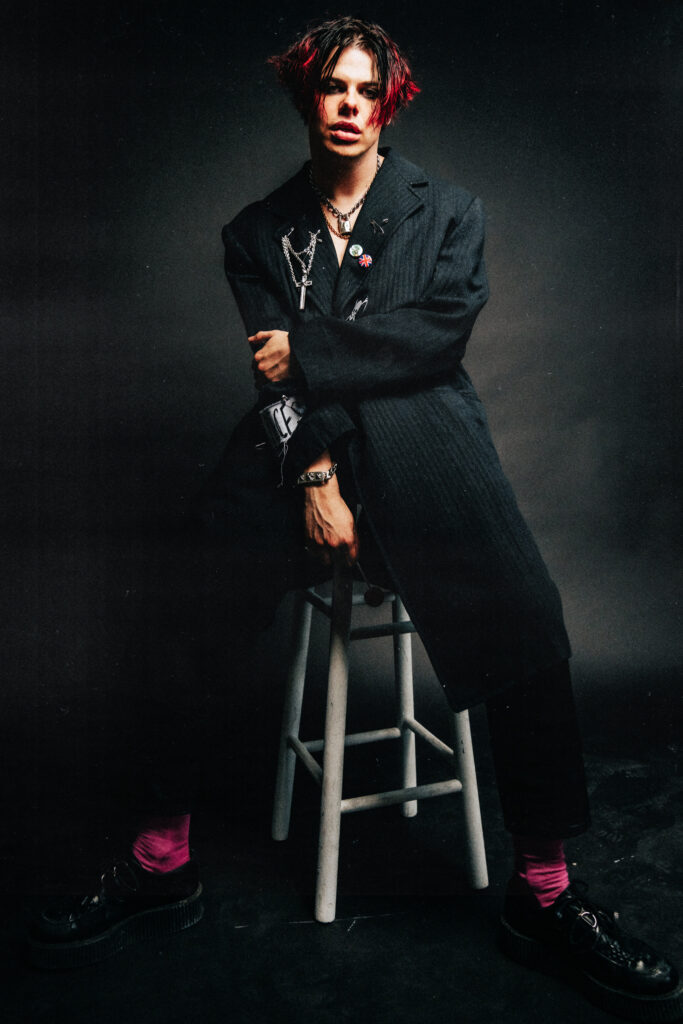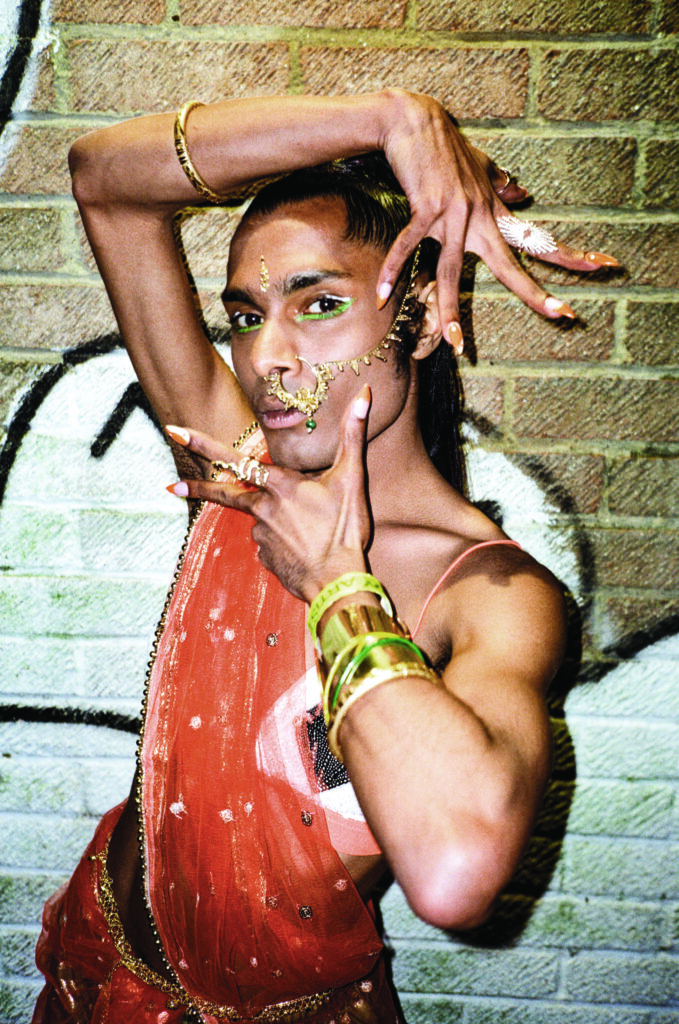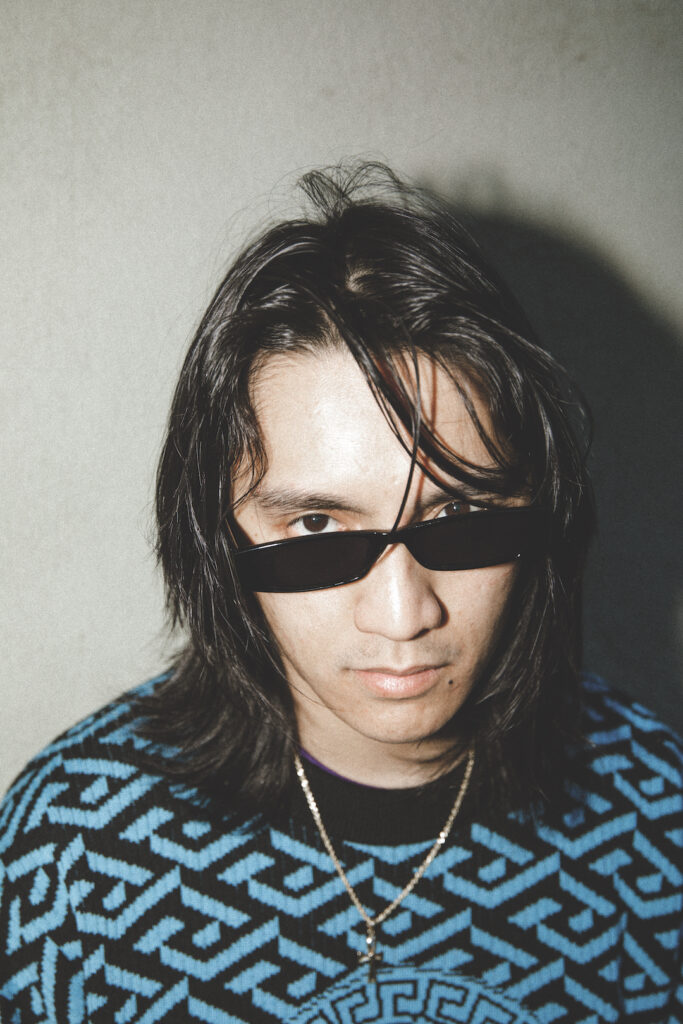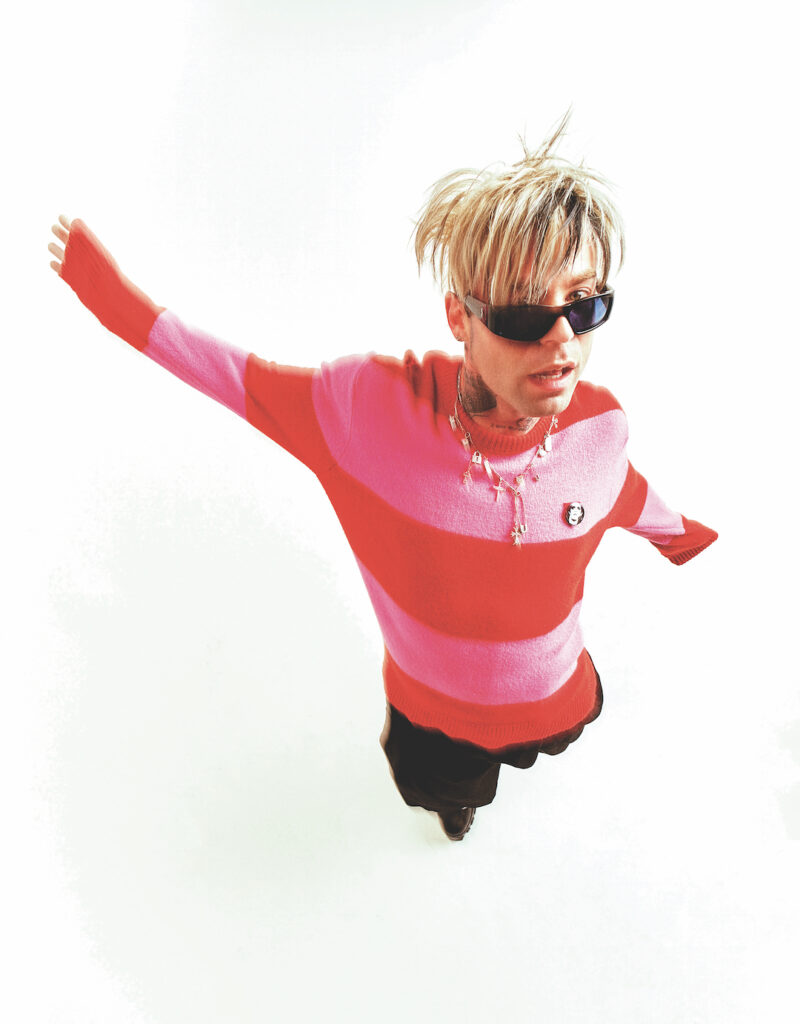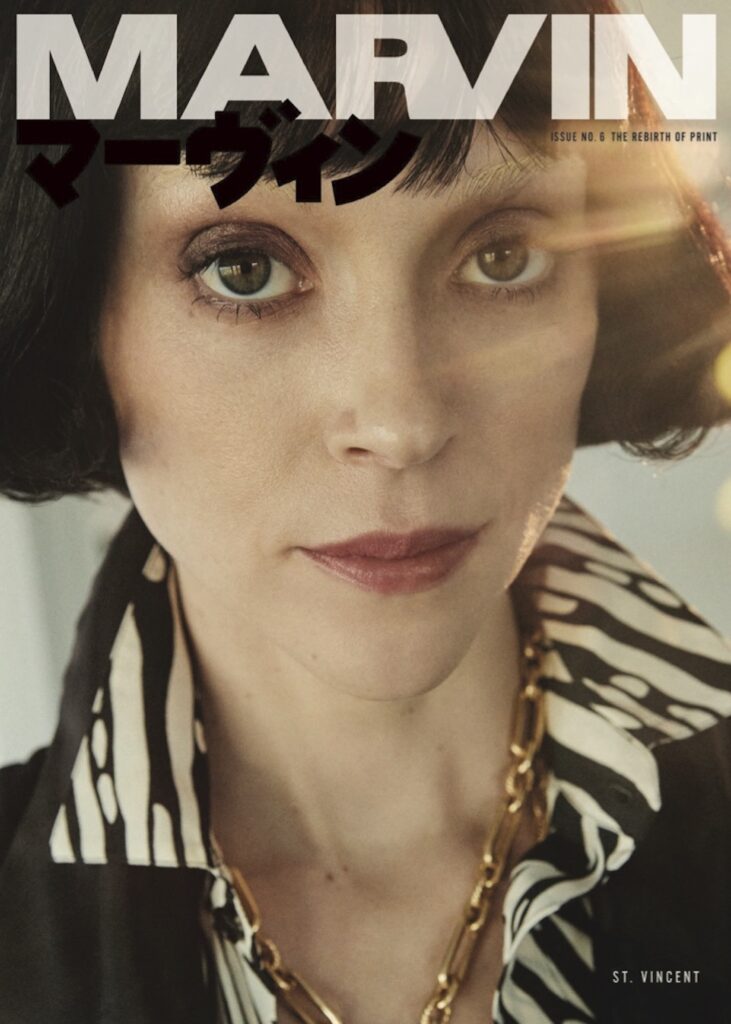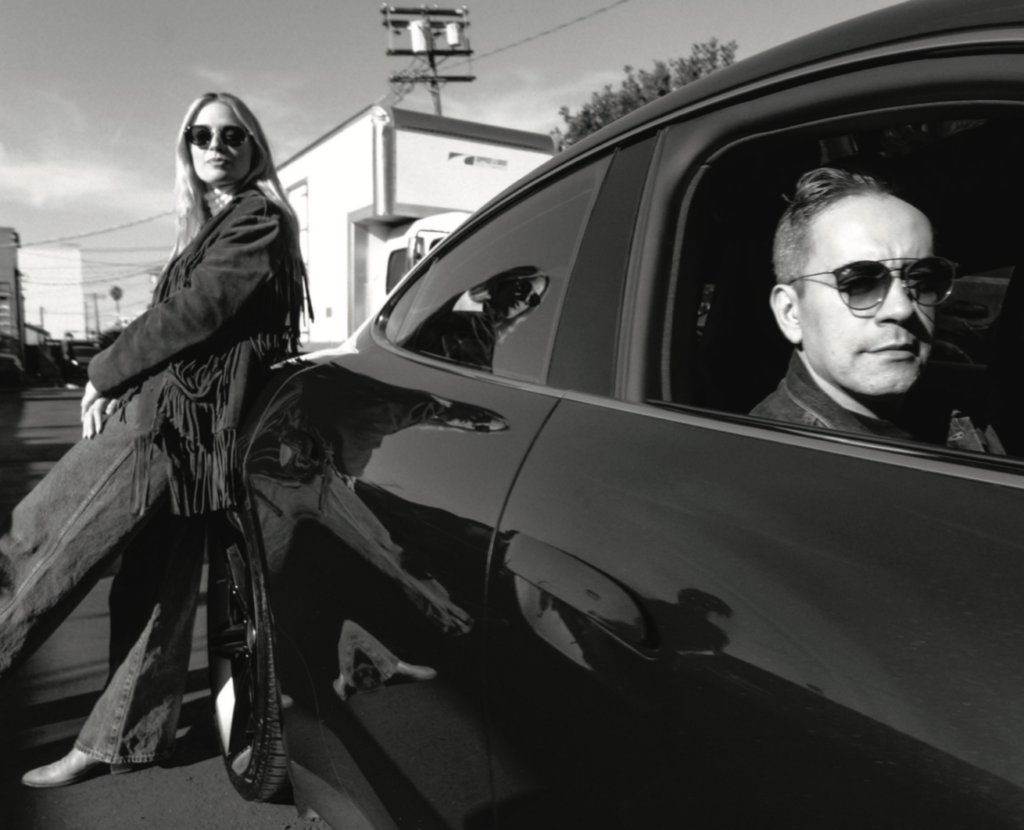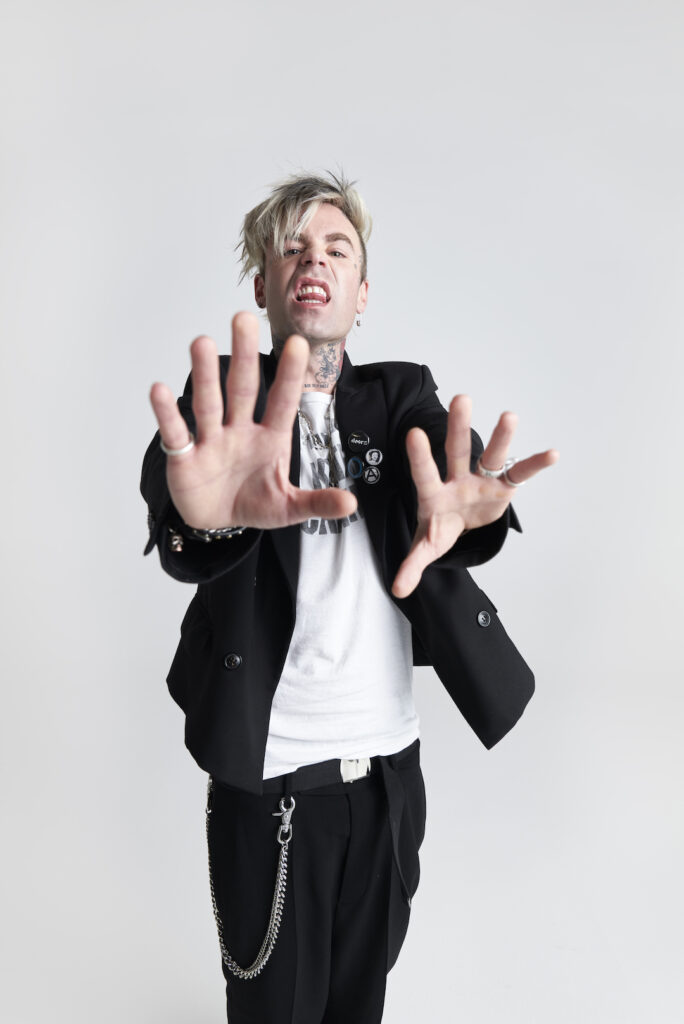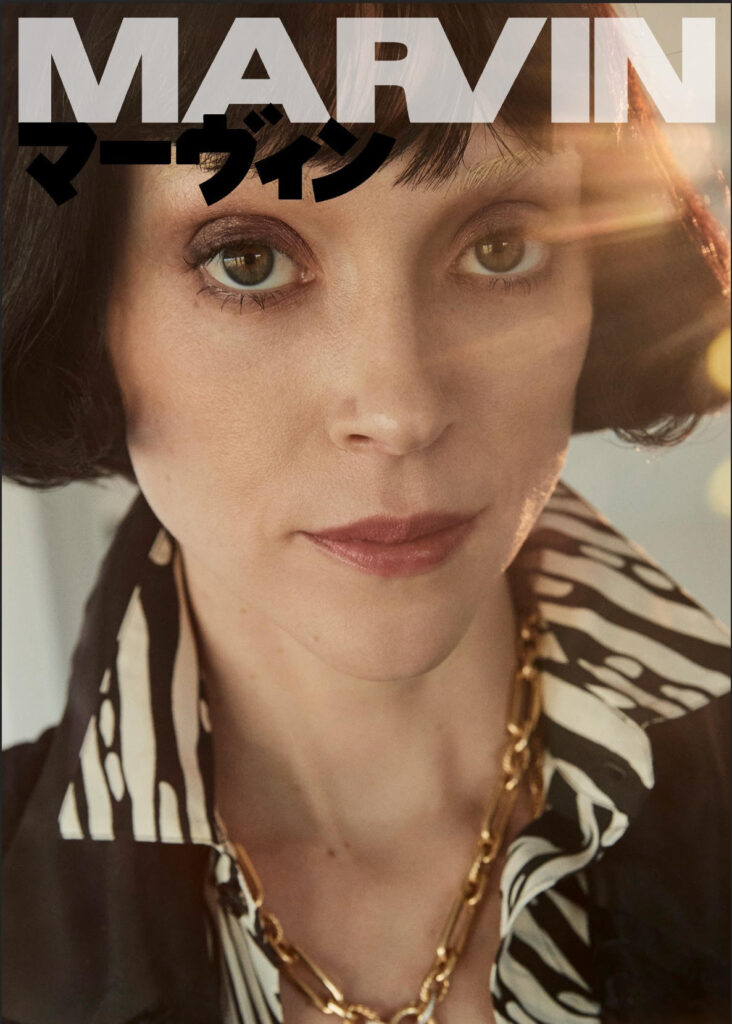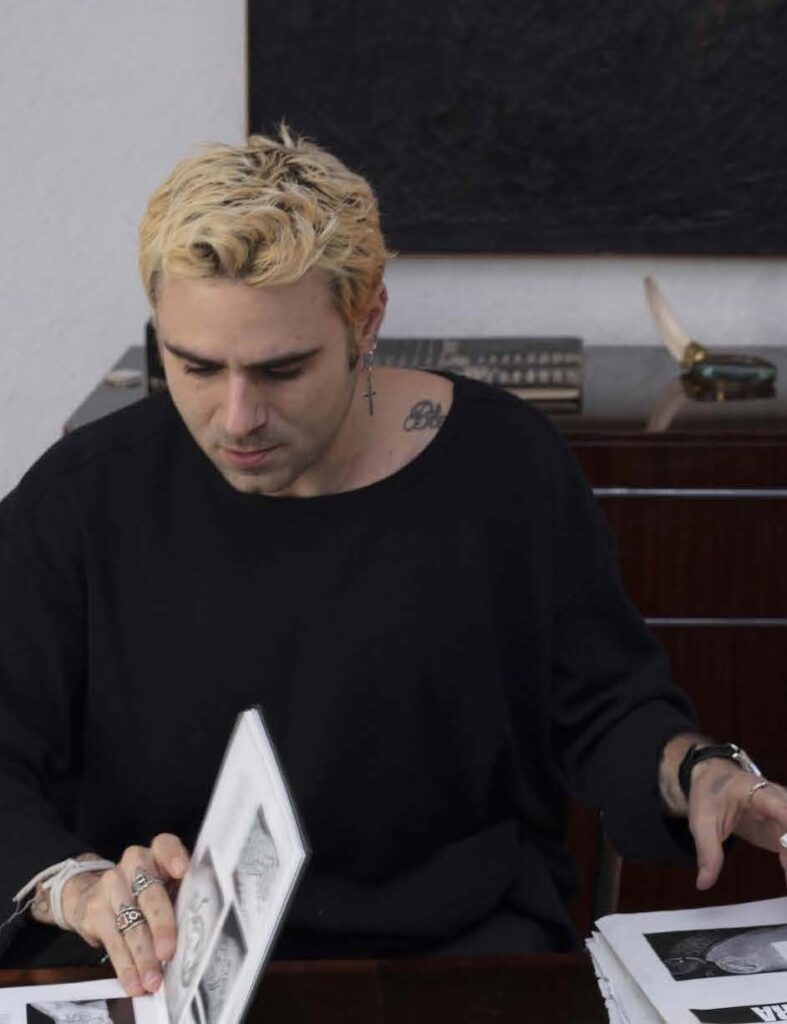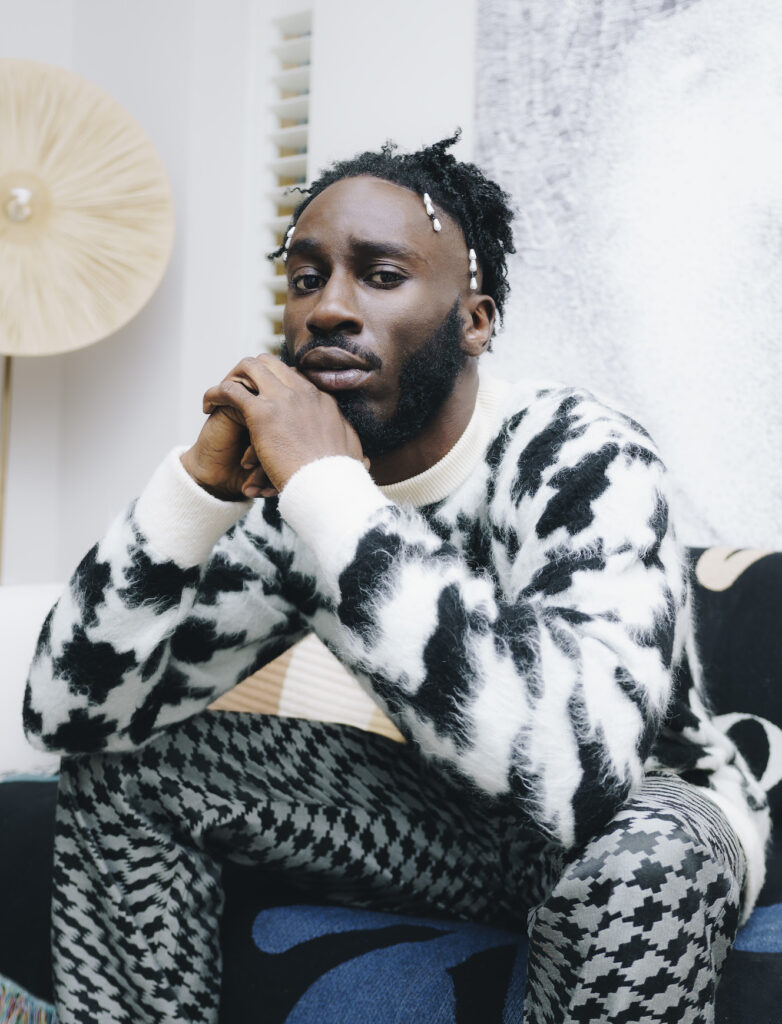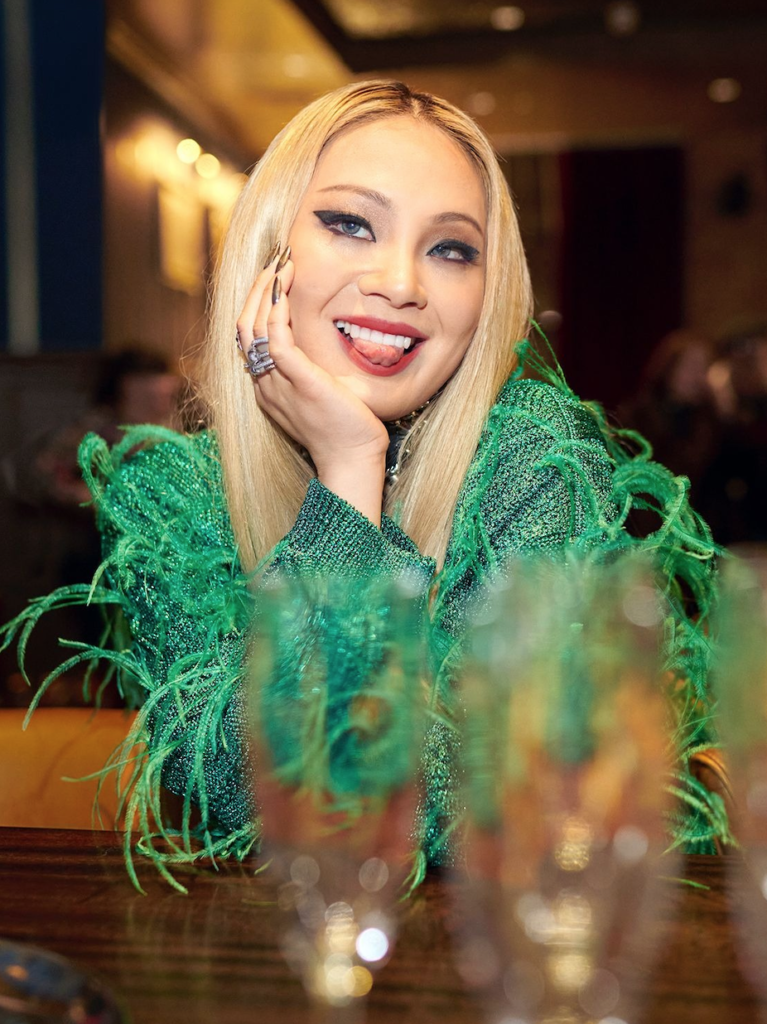British Rockers The Vaccines Reflect on Their Fifth Record “Back in Love City” and Connection to Their Audience Post-Lockdown
Words by Patrick Clarke
Photography by Tom Oxley
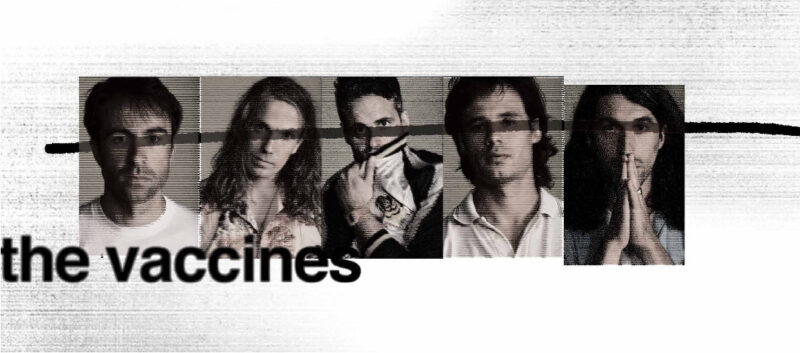
The scene is El Paso airport, the year is 2019. British rockers The Vaccines have just wrapped up sessions for their bold fifth record, Back In Love City, a joyous, intense and emotional fortnight spent immersed in the Texan desert before going their separate ways around the world. “I think the joy of that memory is compounded by the fact that we didn’t see each other again until about eight weeks ago,” says frontman Justin Hayward-Young over Zoom from his tour bus. “Until recently, the ranch felt very much like a world that was frozen in time. The last ‘life in color’ that we had to look back on.”
Even if it hadn’t been juxtaposed with a subsequent eighteen months of lock- down and isolation, the band’s time in Texas was extraordinarily atmospheric. They holed up at Sonic Ranch—the world’s largest residential recording studio complex in the remote border town of Tornillo. The sprawling studio complex set up within a 1,700-acre pecan farm. They were surrounded by the archetypal American desert. The occasional flicker of light from a distant campfire high up in the mountains or a coyote’s howl in the darkness, the only signs of life in the vast expanse that ended each day with warm beers around a bonfire.
The ranch’s eccentric owner Tony Rancich is rumored to be Quentin Tarantino’s inspiration for the titular character in film Kill Bill. “He’d quite frequently come into the studio with a sub-automatic machine gun,” Justin laughs. He also warned them to keep an eye out for the wild jaguar when they went out for their morning jogs. “It’s quite easy to come up with the post-album folklore,” says lead guitarist Freddie Cowan. “Some of us were sleeping in what used to be a holding cell on the Mexican- American border. On the last night, Vaccines drummer Yoann Intonti woke up and said there was a ghost at the end of his bed dressed in an army uniform. “That was one of about twenty stories like that. It was a remarkably dense experience.”
It sounds like they were fully embroiled in their very own Western. “Although while we’re out there playing cowboys in the desert, you are aware of the other side of the coin,” says Justin. A section of Donald Trump’s border wall runs through the property. A nearby detention camp for Mexican migrants attempting to enter the US had only just shut down when the band arrived. “Of the sixty or so people working on the property,” Justin continues, “Tony told us that something like 250 of their family members had been killed by cartels. There was a genuine darkness there and as English people, we have to be careful not to romanticize. There was an awareness but because we didn’t leave the property, we also felt slightly removed.”
It’s easy to draw the lines between the environment in which The Vaccines wrote and recorded Love City and the way it sounds. Twangs of Spaghetti Western guitar and blasts of mariachi trumpet; songs titled “El Paso” and “Bandit”; refrains like: I’m not giving up on my love for you, America on the song “Heart Land.” The album is essentially a procession of classic American images: warm apple pies, king sized Cokes and the like. Yet the demos Young was writing had a distinctly American shape before the residency was even discussed. Cowan had been hugely inspired by two months spent living in Mexico City earlier that year and by a viewing of the Sergio Leone classic Once Upon a Time in the West replete with its iconic Ennio Morricone soundtrack. “American influences have always been at the core of The Vaccines’ DNA,” says Young. He recalls the band’s bracing third single “If You Wanna” which arrived amid a torrent of hype in the British music press.
“Back then, people were saying we sounded like Eddie Cochran. All the best and biggest indie rock at the time was West Coast surf rock and Beach Boys influenced. Whether Phil Spector or Joe Meek, that’s all stuff we were listening to pretty much from day one and it’s followed us around ever since.” Freddie cites the early influence of their manager James Sandom, a rockabilly obsessive who lent them his old clothes and schooled them in the classics on his kitchen jukebox. “I realized that rockabilly was the earliest and most successful form of punk. A good ten or fifteen years before The Stooges’ first record, you’ve got people like Charlie Feathers and Gene Vincent and The Blue Caps making this amazing, dangerous music.
When producer Daniel Ledinsky first espied the vintage American influence in the demos he suggested they decamp to Sonic Ranch to record their fifth record. “We made a conscious effort to inject the record with some of that stuff but it still felt very Vaccines to have that tone.” The result is a record that in all its big American pomp and theatricality is a revitalization of the band’s sound. “I think the time we spent making this record was easily the most enjoyable time we’ve had since our first album. There was so much openness, a sense of excitement and energy,” Justin continues.
It was exactly what they needed after the fraught sessions of the album’s predecessor Combat Sports. Drummer Pete Robertson had quit the band and the rest strongly considered calling it a day entirely. Halfway through a tour, he was replaced on percussion by Yoann and touring keyboard player Timothy Lanham became a full- time member. Once they could start playing the new album live though, they were feeling a whole new lease of life. “Taking it on the road as a five-piece, spending two years having this endless adventure with each other, we were really grateful for every day that came,” says Justin. “We found our flow state. Then we got to the end of the touring cycle with the wind in our sails in love with being in The Vaccines. I think that tied into the writing of Back In Love City.

Buoyed and emboldened by the band’s resurgence, the spirit of revolution is prevalent in Justin’s lyrics. For the first time he’s allowed himself to turn the kind of subjects he’s long been fascinated with into a grand cohesive narrative. Human connection and emotion in an age of intense technological change fill much of the record.
Love City emerges with a rich setting: part Spaghetti Western and part Blade Runner—“like Tokyo in the middle of the desert,” Justin describes it. A fictional metropolis where pure emotion can be bought and sold as a commodity for those left numb by modern life. It also serves as an allegory. “I increasingly think of Love City as the mind or the brain or the heart,” he adds. “My brain can be a metropolis but it can also be a desert.”
After months of pandemic and escalating cultural tensions, it’s easy to be left feeling somewhat numb by all the intensity. Plugging into the pure happiness on Love City feels more tempting than ever. However the record’s themes emerged long before they were thrown into starker focus by the virus, Justin points out. “It’s not like someone flicked a switch, all this division and darkness and anxiety has been going on for a long time. The idea of connection, misconnection, disconnection, they’ve always been themes I’ve been interested in.”
And they’re only getting more resonant. The pandemic, he says, “made me think about Love City in new ways.” He joined Twitter halfway through lockdown.
Which really heightened my anxiety, I really became aware of just how much division there is. Our connection has been reduced to words essentially and words don’t do a very good job of explaining how you feel. How many times have you upset a loved one because they’ve misunderstood your tone on text? I do think that the last eighteen months have added that dimension to the city. Increasingly I’m thinking about it as less of a place and more of a state of mind.
“In my mind,” adds Freddie, “whatever social media’s trying to do, Love City is the end goal where they’ve absolutely nailed it and Google can sell you love at the click of a button. You don’t have to worry about your friends or family or the idea of social convention. It’s like social media heroin.”
As they bring the record on tour across the UK, it’s to a country that in many ways seems different to the one they last performed in. Across the venue they’re playing the night of our interview, an enterprising new business is offering “VR Experiences,” they note wryly. On the other hand, part of that change is expressing itself in a resistance to those dystopian visions. “Compared to the last time we were on tour, in all these small towns it feels like there are way more independent projects. You feel an increasing sense of community, of people fighting against it. A case in point is how quickly people have rushed back to gigs. There’s always going to be space for that kind of connection,” notes Justin.
One thing that has remained consistent since the band first emerged a decade ago is just how many of people have rushed back to The Vaccines. Back In Love City was their fifth consecutive record to reach the UK Official Albums Chart Top 5. In April next year, they play Wembley Arena. “The fact that our music is still entering the hearts and minds of people that it’s aimed at is definitely quite gratifying.” It’s also relieving. “I think most artists would be lying to you if they said they paid no heed to what degree they were connecting with their fanbase.” The band has continued appealing to successive generations. They say they’re seeing teenagers in the front rows for their new gigs that would have been too young to have even gained entry last time around.
Back In Love City makes such a conceptual step forward for the band that after a tumultuous decade of hype, pressure, tumult and self-doubt, that they’re on the firmest footing of their career. There’s a ring of satisfaction to Freddie’s voice as he takes a moment to rest on his laurels. “Being in a band for over a decade, we’re past the point now where we continue to convince ourselves that it’s just a coincidence. That we’re having some success, and that the music’s connecting; what we’re doing together works. And that’s something that’s really worth honoring.”
@thevaccines
